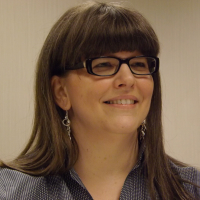Over the course of decades spent observing the relationship between Israeli and American Jews, I’ve come to an unavoidable, if hardly scientific, conclusion: It’s weird.
American Jews seem to encourage what amounts to a life-long crush on the State of Israel and its inhabitants, leading to such various reactions as: American rabbis giving their podiums to Israeli officials on the High Holidays, when we’re enjoined to concentrate not on things of this Earth but on malchut shamayim (the Kingdom of Heaven); a slew of folks deciding I must be ok, despite my left-wing opinions, because after all, my husband was born and raised in Jerusalem; and of course, cases of the collywobbles among American youth when Israelis happen to drift through the room.

What a lot of Americans might not realize is that the crush cuts both ways. Witness the reception recently received by 351 new immigrants:
Some 350 new immigrants from North America—including five sets of twins and two sets of triplets—were welcomed personally by Prime Minister Benjamin Netanyahu at Ben Gurion Airport on [August 14]. “I’m proud of you,” the prime minister told the group. “We’re all proud of you. Friends of Israel, Jewish and non-Jewish alike, are all proud of you.”
The new arrivals on the special Nefesh B’Nefesh charter flight were greeted with song, dance and a number of very short, but warm speeches by several dignitaries, including the prime minister and the Chairman of the Jewish Agency for Israel, Natan Sharansky.
Dude. Seriously? For 350 people (even if more than 5% of them were twins/triplets)? Last year, some 7,200 immigrants arrived from the former Soviet Union and more than 2,600 from Ethiopia—the Prime Minister might have greeted some of them at the airport, too, but I can’t find evidence of it.
Americans are special, though.
When I was a young and single in Tel Aviv, being American (and looking like it) was a dating plus; my opinions of hootz l’aretz (“abroad”) were often sought simply because I was American-born; and I’ve been told more times than I can recall that I was crazy to have made aliyah (and subsequently praised for being “smart enough” to leave), because surely life in America was better. European influence on Israeli society is enormous but the vast majority of foreign culture, and the English taught from elementary school on, comes straight from the US.
It seems to me, if I may indulge in a bit of armchair sociology, that we’re two communities looking for validation in each other’s eyes.
Many Americans see Israelis as the final arbiters of “real” Judaism. The gargantuan role played by the Jewish State in modern Jewish consciousness, Israelis’ daily use of our holy tongue, and the fact of an entire society shaped by the annual rhythms that Diaspora Jewry must struggle to maintain all provide a kind of cachet that can be dazzling.
On the other hand, Americans live in, well, America—the single most powerful nation on earth. A place where schooldays last past noon, working hard can lead to financial security, and kids grow up without the constant threat of war. There’s a reason that the word “America” is occasionally used in Hebrew to mean something like “top of the line,” or “lucky.”
When American Jews give that up, the Israelis welcoming them can seem a little stunned, particularly if times are hard. Indeed, not a week after he greeted a planeful of new immigrants, Natan Sharansky told Israeli Army Radio that all the talk of war with Iran had given other potential olim cold feet:
[There have been] incidents of would-be immigrants canceling their plans after all the details had been finalized. One of them told me: 'We will come after the Middle East has had its nuclear war.’
Add to that the fact that 400,000-600,000 Israelis now live in North America, and throw in studies revealing things like 60% of native-born Israelis want a second passport and half of Israeli teens wish they lived elsewhere, and and one begins to understand the gratitude.
But I would argue—as an American-Israeli who loves both places very much—that this weird relationship is neither wise, nor healthy.
Israelis hold no lock on what it means to be authentically Jewish (my husband, for instance, wouldn’t set foot in a synagogue were I not his wife) and while America might offer creature comforts, it has neither the Galilee’s hills nor the echoes of centuries in its streets. Too much idolization can lead to resentment—American Jews rejecting Israel because of government policy, say, or Israelis telling me “You’re not like a real American,” and meaning it as a compliment.
Rather than rolling out an unquestioning red carpet for each other, while whispering or ogling behind each other’s collective backs, I wish American and Israeli Jews could develop a genuine dialogue, one in which we fully share our experiences as modern members of this ancient community and stop making assumptions based in the geography of our birth.
I’d also like to see a follow-up study in a few years on those 351 new American-Israelis—in 2003, Haaertz reported that about one in four North American olim return to their home countries permanently.
As a member of that statistic, I feel that number matters, too.






